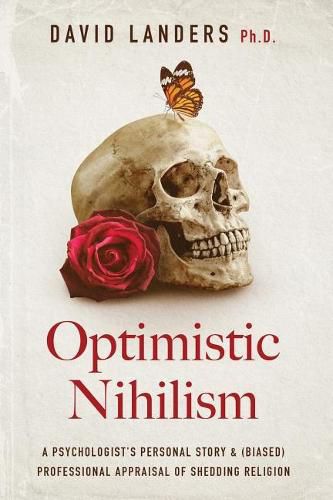Readings Newsletter
Become a Readings Member to make your shopping experience even easier.
Sign in or sign up for free!
You’re not far away from qualifying for FREE standard shipping within Australia
You’ve qualified for FREE standard shipping within Australia
The cart is loading…






Through surprisingly good storytelling, David Don’t Call Me Doctor Landers takes us on a captivating spiritual adventure as he walks us through his personal evolution from dedicated Christian to devout atheist. But much more than autobiography, his story is woven with provocative psychological and philosophical commentary, including input from the likes of Lucretius, Freud, and the metal band Napalm Death. A rare style of intellectual but conversational and poignant but humorous makes for a highly accessible and enjoyable read. As the spiritual account winds down, the book transitions into a more rational exploration of the problems associated with religion-and even with spirituality in general. Everyone from outspoken atheists to moderate believers will be engaged, as David is able to critically evaluate spirituality without the hostility so common among modern atheist writers. At the book’s climax, David develops the popular atheist conversation a little deeper by courageously exploring the implications of nihilism: If our deepest fears about the nature of reality were to be true, could we go on? By the end of Optimistic Nihilism, we begin to suspect that we could-and even wonder if a relatively nihilistic perspective paradoxically makes life more precious than any other scheme. A critical must-read for all students of spirituality, psychology, and humanity.
$9.00 standard shipping within Australia
FREE standard shipping within Australia for orders over $100.00
Express & International shipping calculated at checkout
Through surprisingly good storytelling, David Don’t Call Me Doctor Landers takes us on a captivating spiritual adventure as he walks us through his personal evolution from dedicated Christian to devout atheist. But much more than autobiography, his story is woven with provocative psychological and philosophical commentary, including input from the likes of Lucretius, Freud, and the metal band Napalm Death. A rare style of intellectual but conversational and poignant but humorous makes for a highly accessible and enjoyable read. As the spiritual account winds down, the book transitions into a more rational exploration of the problems associated with religion-and even with spirituality in general. Everyone from outspoken atheists to moderate believers will be engaged, as David is able to critically evaluate spirituality without the hostility so common among modern atheist writers. At the book’s climax, David develops the popular atheist conversation a little deeper by courageously exploring the implications of nihilism: If our deepest fears about the nature of reality were to be true, could we go on? By the end of Optimistic Nihilism, we begin to suspect that we could-and even wonder if a relatively nihilistic perspective paradoxically makes life more precious than any other scheme. A critical must-read for all students of spirituality, psychology, and humanity.